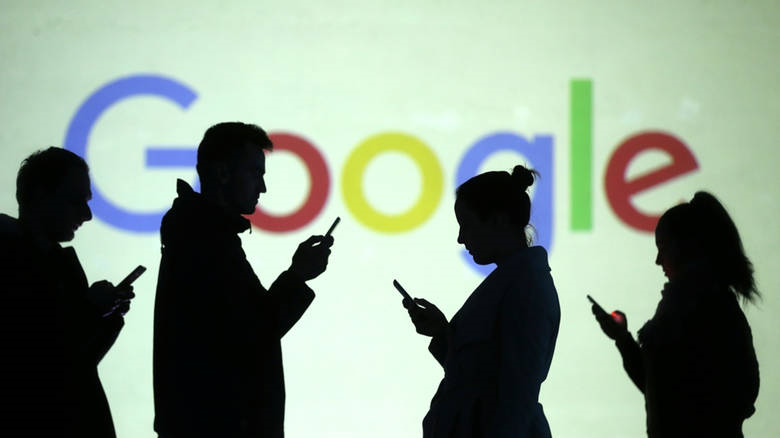 By Staff
By Staff
March 31st, 2018
BURLINGTON, ON
The headline read: Want to know everything Google knows about you?
It was part of a Saturday morning CBC radio program Day 6. Incredible, frightful and not really a damn thing you can do about it.
They know it all – and they will sell it to anyone who will pay the price. That includes political organizations; national brand advertisers and literally every police or security authority out there.
We have set out a transcription of the conversation that is to be broadcast.
 It is between Ireland-based data consultant and web developer Dylan Curran and Day 6 host Brent Bambury, who is interviewing Curran, who explains, step by step, how anyone can check what information Google has on them — from where they’ve travelled to their political views and even which stickers they’ve used online.
It is between Ireland-based data consultant and web developer Dylan Curran and Day 6 host Brent Bambury, who is interviewing Curran, who explains, step by step, how anyone can check what information Google has on them — from where they’ve travelled to their political views and even which stickers they’ve used online.
The broadcast of course doesn’t have any visuals. Those can be seen at this link:
You can follow Curran on Twitter at: @iamdylancurran
It’s no secret that Facebook and Google collect data from people who use their services. But Curran was shocked by just how much he found about himself on Google.
He talks with Day 6 host Brent Bambury about why companies like Google store so much personal data, and what it could mean for the future.
 Brent Bambury: What prompted you to look into how much data Google has collected about you?
Brent Bambury: What prompted you to look into how much data Google has collected about you?
Dylan Curran:I was on Twitter one Saturday, a little bit hungover — I have a life — and this person had essentially posted a thread, which was very similar to mine, but all they were going through was the Facebook data rather than the Google data as well. They showed that Facebook was storing your phone text messages or phone call records, and these collections are external to Facebook so they were storing things that they didn’t need to store. And then after seeing that, and seeing the shock that so many people were experiencing, I decided to go in and do a little bit of investigation myself and compile it into something that people could easily read.
Brent Bambury So what other types of information were you able to find out had been collected about you online?
Dylan Curran: Oh God, so much. Number one was that they were storing Google incognito history. So if you were using private browsing, where they don’t track your data, they did actually store it. So, say your wife wouldn’t be able to see what you are doing in Google incognito, but Google will. And number two, they were mapping out your location every time you turned on your phone. So if your location setting is turned on, Google will log your location every time you turn on your phone. They store that and then they’ll basically put it into a big database and you can go onto maps.google.com/timeline and see where you’ve been for the last four or five years.
Brent Bambury At the end of six hours how many gigs of information did you have that Google had on you?

Dylan Curran: We don’t have the lady’s name.
Dylan Curran: Facebook has 600 megabytes and Google had 5.5 gigabytes — which, for context, is about three million more documents.
Brent Bambury Now, if Google is storing that amount of data for every person who uses a Google product or a Google app, that’s a lot of raw data. How is it all stored?
Dylan Curran: I did an estimation where around 2.2 billion people — 70 per cent of the internet— use Google, and this is conjecture, but I would say [they are storing] on average maybe one gigabyte per person. So if they have 2.2 billion gigabytes, that’s 2.2 exabytes. That’s three per cent of the world’s online storage.
Just try and keep in mind that everything you do online does leave a footprint and it will be kept forever.
Brent Bambury How much does it cost to store three per cent of the world’s online information?
Dylan Curran: Because of economies of scale, it’s quite easy for them to store. Google makes on average $12 per person for their information, and the cost of storing it, I would say, is less than a fraction of a cent.
Brent Bambury You said that Google’s making $12 per person through our data. How did they monetize it into a profit?
Dylan Curran: What they essentially do is they take your information and then they build an advertising profile based on you. Advertisers pay to use that advertising profile to target you with the products and services that they want to sell you.
Brent Bambury People were shocked by the amount of information that you uncovered that Google had on you. What are the implications of all of this, of these private companies having so much data about so many people?
Dylan Curran: My problem really is that we don’t know the implications. So I have no doubt that Google, Facebook, Snapchat, Instagram and Twitter, etc., aren’t doing anything too nefarious with the data. I don’t think that’s what’s happening. It’s just that they are cataloguing all of this information. So if Google has information on a third of the population on the planet, down to everything they’ve done for the last 10 years, that does have a lot of negative connotations for the future. Especially in an ever-changing world. I do strongly believe that it’s safer just to not have that kind of potential bomb available. I think it can be a little less extensive.
Brent Bambury: But there doesn’t seem to be a clear way of opting out. I mean, even if people change their privacy settings, is there any way of escaping having your data collected by Facebook or Google?
Dylan Curran: No, that’s the thing. These are free services, and I don’t have any problem morally or ethically with them collecting information in return for using the service. They’re companies and they’re trying to make money. What the issue is, really, is that they’re just collecting too much. They’re going too far.
What people can do is just be a little bit careful online. I’m not suggesting to delete Facebook or delete Google or anything like that. Just try and keep in mind that everything you do online does leave a footprint and it will be kept forever.
 The transcript has a note saying: This interview has been edited for length and clarity.
The transcript has a note saying: This interview has been edited for length and clarity.
The full Day 6 broadcast can be heard on CBC Saturday morning at 10 am and then found on the CBC archives.
Fascinating!





















Thank you for showing us how to find what information Google et al have about us. Now that we know, we can start to change things.
Byron, don’t shoot the messenger. Focus on the article, the information is far more important than the headline.
That’s why VPN is very important when surfing the internet. Unfortunately Bell and the other ISPs are blocking VPN sites. No need to wonder why. Information is king. You can opt out to not share your location or other information on your phone however the apps become less useful. In short – if you want to take advantage of the wonderful world of the internet and all the incredible smart phone apps … you essentially are exposed and naked.
Responding to Byron
And just how many people actually do any kind of opt out? The headline used could have been a little softer – but at least the story is being told and people are being alerted.
A deliberate and very misleading headline.
Google does NOT have “everything you ever said on a cell phone, everything you ever wrote and where you travelled” and the interview referred to is very clear in making the distinction.
It only has that information if YOU CHOSE to allow it to collect the information and YOU USE Android or Google software products and YOU PERMIT tracking on your device.
If you do none of those things they have nothing on you whatsoever.
The Gazette once again attempts to sensationalize in an amateurish manner.
Byron,
The story headline did not say “Google “does” have everything”, it says “could”, which in my experience is a very distinct and practical difference.
My experience was that the default setting I had, and didn’t even know existed, and could be set to something else by me, was to allow them access to everything.
I’m a just in time learner, so I just went with what worked and didn’t even know about settings. The apps worked, so I just went with it, oblivious to what was going on.
It was only when I learned about tracking, through using travel sites and the accumulation of cookies in my computer, that I found out about settings and that I had to choose blocking myself.
I found out they did have practically everything that was of concern to me.
The providers make things so smooth and easy on the the surface, users like me are just taken in.
So for the naive users, like myself, I found the story more truthful and informative, than deliberately misleading. It fit my experience and I hope it wakes others up as well.
I think you were too harsh, as you didn’t consider the context and background possibilities, but assumed everyone would know they had to do settings so that the defaults that allowed access to everything would not be in use.
Editor’s note: I responded to Byrons comment by changing the headline. He was correct – I had said – it was more like implying – that Google was tracking everything. The truth is they could, and if what we are reading elsewhere they are.
Muir read the story later in the day and got the revised headline.
Editor:
Thank you.
Byron.